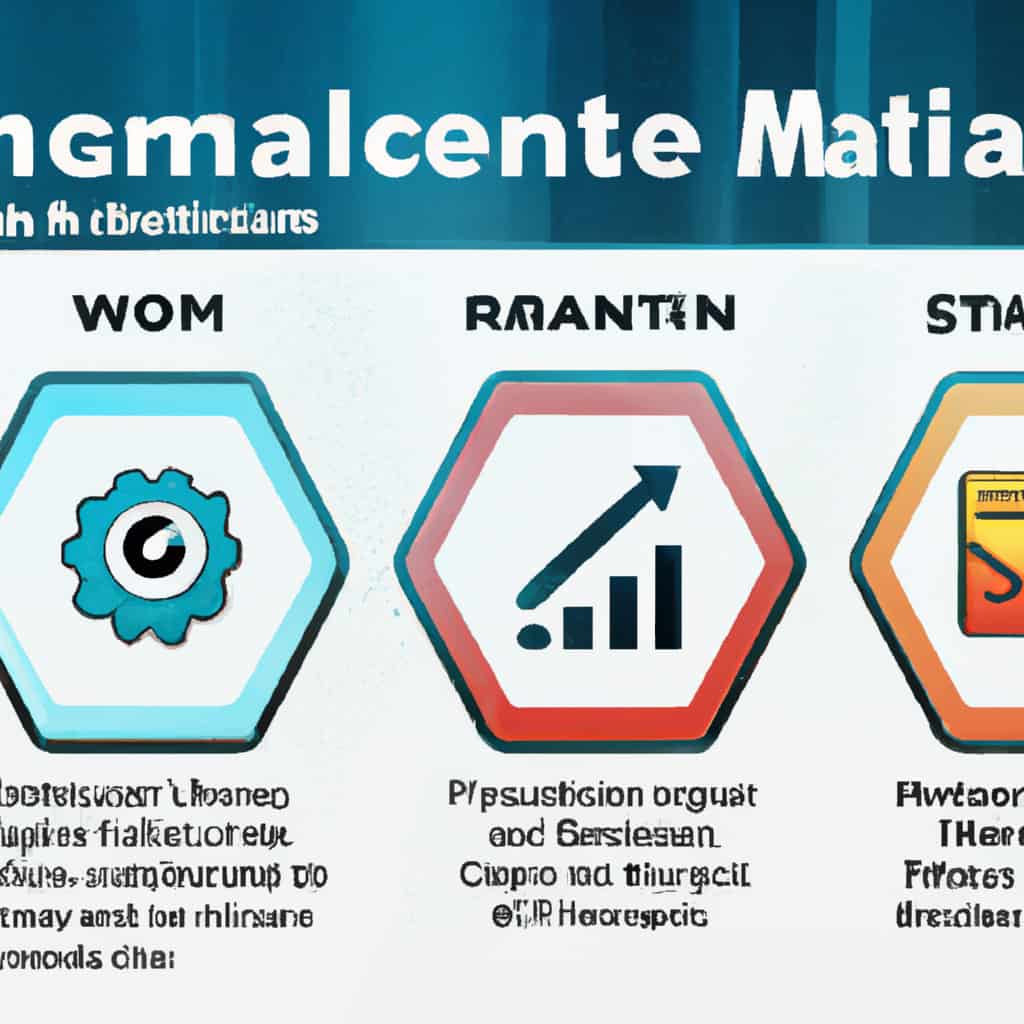In the realm of marketing, harnessing the power of artificial intelligence (AI) has become increasingly essential. This article presents an exploration of the top three AI marketing tools that promise to elevate marketing efforts to unprecedented heights.
These tools offer a range of capabilities, including personalized content recommendations, predictive analytics, and automated campaign optimization. By delving into their features, integration options, and pricing models, marketers and business owners can enhance their strategies, improve campaign performance, and deliver truly personalized experiences to their audience.
Key Takeaways
- AI marketing tools offer personalized content recommendations, predictive analytics, and automated campaign optimization to enhance marketing efforts.
- These tools help marketers improve campaign performance, deliver personalized experiences, and make data-driven decisions.
- Integration options include seamless integration with existing marketing platforms, API integration for data exchange, and integration with CRM systems for customer insights.
- Pricing models for AI marketing tools include subscription-based pricing, tiered pricing based on features and usage, and customized pricing for enterprise clients.
Enhancing Marketing Strategies With AI Marketing Tools
Enhancing marketing strategies can be achieved through the utilization of AI marketing tools. These tools offer features such as personalized content recommendations, predictive analytics, and automated campaign optimization.
AI-driven customer segmentation is a crucial aspect of these tools. It allows businesses to identify and target their audience more effectively by analyzing large volumes of customer data. This segmentation enables marketers to create personalized campaigns that resonate with their target audience, resulting in higher engagement and conversion rates.
Another key feature offered by AI marketing tools is real-time data analysis. This allows marketers to gather and analyze data in real-time, providing valuable insights into customer behaviors, preferences, and trends. By leveraging these insights, marketers can make data-driven decisions and optimize their marketing campaigns for better results.
Overall, AI marketing tools provide marketers with a strategic advantage. They enable them to enhance their marketing strategies through personalized content recommendations, predictive analytics, and real-time data analysis.
Improving CampAIgn Performance With AI Marketing Tools
Improving campaign performance can be achieved through the utilization of AI marketing tools that provide capabilities such as personalized content recommendations, predictive analytics, and automated campaign optimization. These tools offer several benefits for marketers and business owners, including optimizing ad targeting and measuring ROI.
-
Optimizing ad targeting: AI marketing tools use advanced algorithms to analyze vast amounts of data, enabling marketers to target their ads more effectively. By leveraging AI, marketers can identify the most relevant audience segments and deliver personalized content to increase engagement and conversions.
-
Measuring ROI: AI marketing tools provide robust analytics capabilities, allowing marketers to track and measure the performance of their campaigns. These tools can analyze data in real-time, providing insights into key metrics such as click-through rates, conversion rates, and customer lifetime value. With this information, marketers can make data-driven decisions and optimize their campaigns to maximize ROI.
Delivering Personalized Experiences to Your Audience With AI Marketing Tools
Delivering personalized experiences to the audience can be achieved through the utilization of AI marketing tools. These tools offer capabilities such as personalized content recommendations, predictive analytics, and automated campaign optimization.
By employing AI driven personalization techniques, marketers can create tailored experiences that resonate with their target audience. AI powered customer segmentation allows for the identification of specific customer preferences and behaviors, enabling marketers to deliver more relevant and personalized content.
Predictive analytics assists in understanding customer needs and preferences, enabling marketers to anticipate their requirements and deliver personalized recommendations. Automated campaign optimization streamlines the process of tailoring campaigns to individual customers, ensuring that the right message reaches the right audience at the right time.
These AI marketing tools enable marketers to enhance their strategies, improve campaign performance, and ultimately deliver personalized experiences that foster a sense of belonging among their audience.
Conclusion
In conclusion, AI marketing tools offer valuable capabilities to enhance marketing strategies, improve campaign performance, and deliver personalized experiences to the audience.
One example of the power of these tools is the case study of a retail company that implemented AI-powered personalized content recommendations. By analyzing customer data and behavior, the tool was able to suggest tailored product recommendations, resulting in a 20% increase in conversion rates.
This demonstrates how AI marketing tools can effectively optimize marketing efforts and drive better results for businesses.
